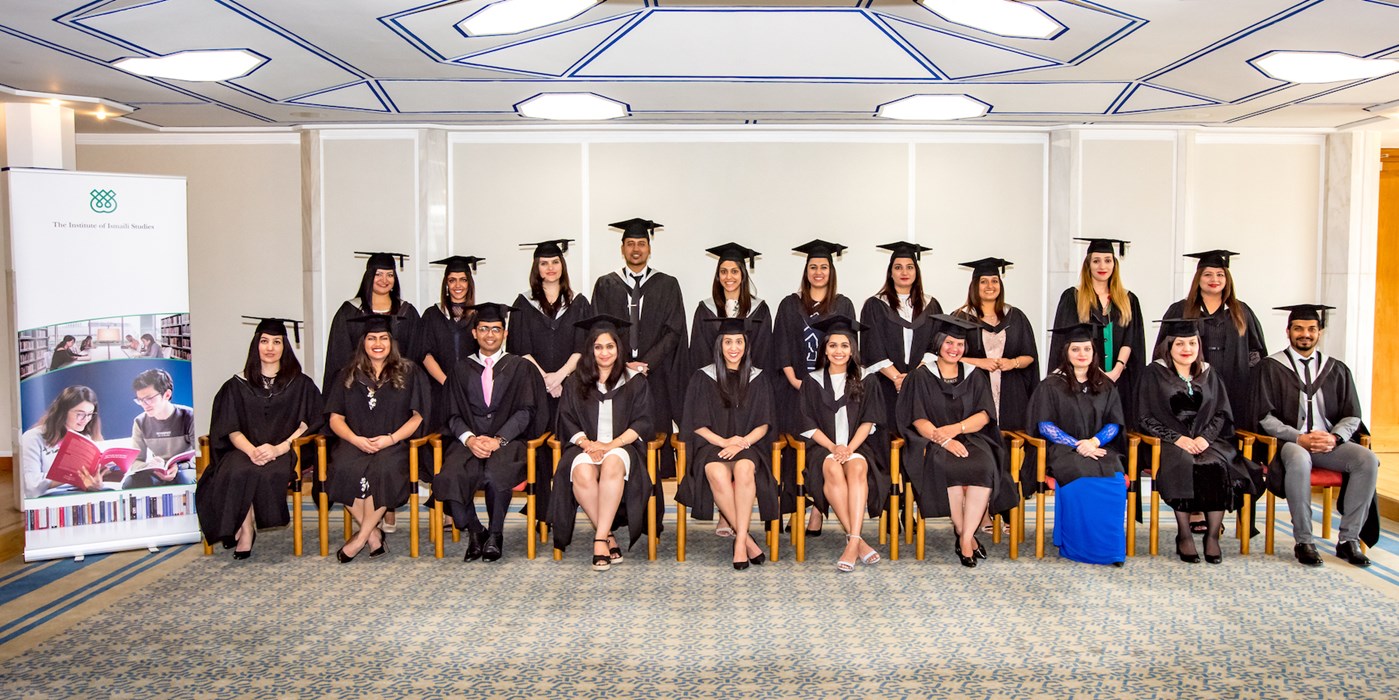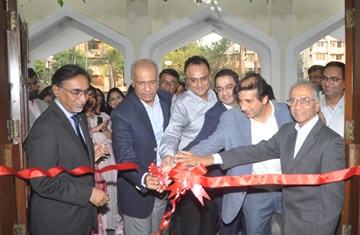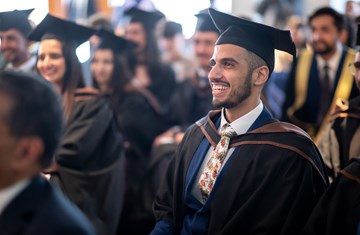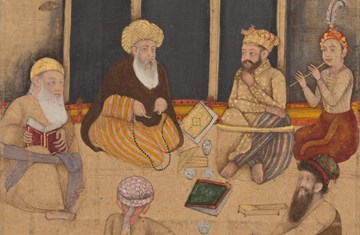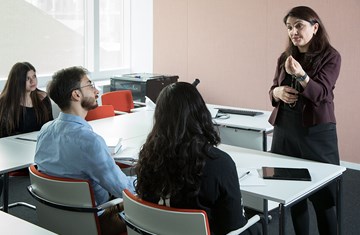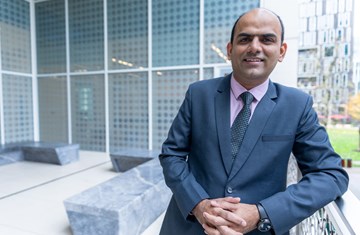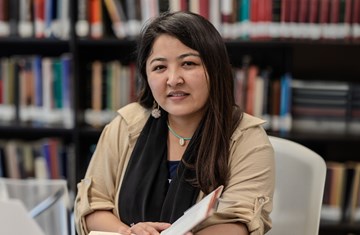Tenth STEP Graduation Celebrates the Class of 2018
On 13 April 2019, twenty-eight students graduated from the Secondary Teacher Education Programme (STEP) at The Ismaili Centre, London. Students from Canada, India, Kenya, Pakistan, Tajikistan, Tanzania and the USA received a double Master’s degree: an MA in Education (Muslim Societies and Civilisations) and an MTeach (Master of Teaching). Both degrees were awarded by the University College London Institute of Education (UCL IOE) and were presented to the graduates by Dr Farhad Daftary, Co-Director at IIS, and Dr Joanne Pearce, Principal Teaching Fellow at UCL IOE.
A keynote address was delivered by Professor Terence Lovat, Emeritus Professor and former Pro Vice-Chancellor and Dean of Education at the University of Newcastle, Australia; Honorary Professor at Glasgow University and Research Fellow at Oxford University, UK. He shared his personal reflections on how a sound religious education can help young people to navigate through their lived experiences in today’s world, stating that:
There are so many crucial things happening in our world at so many levels, which can only be unravelled by means of a certain kind of religious and theological literacy… It’s this kind of literacy, in my own view, that should be driving much of what constitutes as religious education in our schools, institutes and universities - helping young people to understand the important role, the good and ill, that religion plays in their world. What benefit in an education that fails to do this? By receiving the training, you have, you’re in an ideal position to fill the gaps that have been created I think in western society, through a series of what, Jürgen Habermas, the German philosopher calls ‘blind spots.’ One of these blind spots relates to the need for balancing the curriculum, and the other for a sound balanced and well-informed religious education, not one that’s merely there for internal polemical consumption but there to inform and prepare young people for the world in which they’re moving.
This year’s valedictorian, Alisha Hussein Manji Esmail from Tanzania, received a double distinction in her MA and MTeach degree, and the Outstanding STEP Student Award for her exceptional performance during the two-year programme. Reflecting on the journey that lies ahead, she spoke about the value of putting knowledge into action and commented:
Ghazali, an influential Muslim thinker rightly said, ‘Knowledge without action is vanity, and action without knowledge is insanity’. Thus, highlighting the complementarity between knowledge and action. I share these thoughts with you today, so that as we vision ourselves in this larger narrative, we may reflect upon our dual roles as leading learners and religious education teachers, so that we remind ourselves that the search from knowledge is a never-ending process that involves the continuous learning, unlearning and re-learning of what is familiar and what is unfamiliar. I am convinced that a metacognitive reflection on this matter will enable us to address and dialogue on issues facing the contemporary Muslim world. It will allow us to serve as ambassadors who can actively bridge knowledge and action.
A further four students also received a distinction in either, both or one of their MA or MTeach degrees. An honorary STEP teacher title was bestowed on the late Mumtaz Mehboob (1987 – 2018).
According to Dr Laila Halani, Head of Graduate Studies at IIS, the success of the graduates is a testament to the dedication and hard work of both the graduates and the faculty at the IIS and the UCL IOE. Looking to how the graduates can shape the next generation of learners, Dr Halani reminded the graduates about their responsibilities as STEP teachers, not only as potential role models for their students, but also as exemplars for the community. In her address, Dr Halani advised:
The solution is not to try and teach values to your students but to develop them within yourselves. Your struggles, your stumbles, and your successes will inspire your students to emulate you. That is how you become a role model. Striving to become the human beings that you want your students to be, is the first step to being a role model. As you grow into your roles as STEP teachers, as educators – who never stop being students themselves – whose curiosity is matched by that of the youngsters they teach, you will touch the lives and souls of the youth. You will be the role model. And I wish you and your families the very best as you embark on this ambitious journey.
This year marks the tenth graduation ceremony since the inception of the Secondary Teacher Education Programme. There are now 314 STEP teachers from 14 countries who have graduated from the programme and are now serving at the Ismaili Tariqah and Religious Education Boards (ITREBs) in over 20 countries around the world. The new graduates will join the pool of global educators serving as secondary level religious education teachers and delivering the Institute’s Secondary Curriculum in their home countries.
Post-graduation, the graduating class attended a STEP Continuing Professional Development Programme (CPD) from 14 – 17 April 2019. The CPD consolidates and expands upon the areas of learning explored during their two-year programme. Based on the initial field experiences of the graduands, the CPD intervention helps participants to identify, assess and plan towards areas of professional growth and learning through guided self-initiatives.

